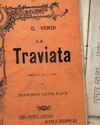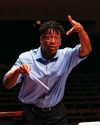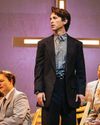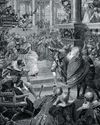
The Orchestra's euphonious brand of bigband swing dominated the airwaves, and for its founder decades more of media celebrity seemed to beckon.
Then Pearl Harbor happened. The Japanese bombing of an American naval base in Hawaii in December 1941 drew the US into the war, prompting Miller to offer his services to the military effort. Initially rejected by the Navy, by September 1942 he had persuaded the Army to offer him a commission. He would, he promised, 'put a little more spring into the feet of our marching men and a little more joy in their hearts'.
And that he did, with the same irrepressible energy that had made the original Glenn Miller Orchestra so successful. Within months of enlisting with the Army Air Forces (AAF), Miller had formed a band which broadcast weekly concerts from New York. The ensemble was subsequently sent to Europe to play for the troops. 'Next to a letter from home, Captain Miller,' commented General James Doolittle, his commander, 'your organisation is the greatest morale builder in the European Theater of Operations.'
But a fateful turn to Miller's life was looming. In June 1944 he was sent to London, tasked with providing broadcast entertainment to the D-Day forces in their onward push to reclaim territory in Europe. Miller, as ever, approached his new assignment with gusto, and five months later received approval to billet his AAF musicians closer to the action in liberated Paris.
Bu hikaye BBC Music Magazine dergisinin December 2023 sayısından alınmıştır.
Start your 7-day Magzter GOLD free trial to access thousands of curated premium stories, and 9,000+ magazines and newspapers.
Already a subscriber ? Giriş Yap
Bu hikaye BBC Music Magazine dergisinin December 2023 sayısından alınmıştır.
Start your 7-day Magzter GOLD free trial to access thousands of curated premium stories, and 9,000+ magazines and newspapers.
Already a subscriber? Giriş Yap

A way with words
Great operas are inextricably linked with their composer but, asks Jessica Duchen, how often do we acknowledge the important role of the librettist?

THE MAGNIFICENT SEVEN Pick a theme... and name your seven favourite examples
Conductor Domingo Hindoyan nominates the best musical depictions of anger and frustration
A glittering beacon
Until its destruction in the fire of 1936, the Crystal Palace was one of the world's most exciting music venues, and its legacy still lives on today, writes Tom Service.

Christoph Willibald Gluck
Paul Riley traces the wandering existence of a cosmopolitan composer who made it his life's work and ambition to rip up opera's rulebook

The Awards are upon us once more!
Time to vote for the best recordings of the last 12 months

LEADING FROM THE FRONT
From running efficient rehearsals to learning to speak to orchestras with clarity and empathy, an array of exciting courses for conductors has bloomed in recent years, finds Clare Stevens

Kindred spirits
As their second opera takes to the stage, composer Gregory Spears and librettist Tracy K Smith talk to Charlotte Smith about their special partnership

The censors' refusal to play ball drives Verdi to despair
In the early months of 1857, Verdi had Shakespeare on his mind, and specifically King Lear.

11 Bed-Hopping Composers
Jeremy Pound lifts the covers off those notorious notesmiths who found the thrill of playing away simply too hard to resist

André Rieu Violinist, Conductor
King of the Waltz, Dutch musical impresario André Rieu has taken the world by storm with his Johann Strauss Orchestra.